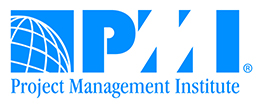Things to know before becoming a PMP – Part Seven
Experience
With a four-year college diploma, you need 4500 hours of experience directing and leading projects. (You cannot just have been a team member taking direction but must have been actively engaged in overseeing the project). This experience must go back at least three years but no more than eight. Projects must be non-overlapping. Without a college diploma, you must have 7500 hours of experience going back at least five years and no more than eight.
How much education do I need?
As mentioned earlier, you will require 35 hours of education, specifically which “addressed learning objectives in project management.” (Quoted from the PMP Handbook). You can either get this from classes you’ve taken or from your PMP class. There is no time limit on how far back the education can go. When in doubt as to whether previous credits apply, check with the school or, failing that, directly with PMI.
The application process
Many candidates find just applying for the exam daunting. This is mostly because they have to think back as far as eight years, categorize their time managing projects and estimate how many hours they spent in various areas. No one thinks about projects this way and so it’s quite time consuming. Candidates have reported it has taken them several weeks to fill the application out, sometimes for one hour per night. Note that PMI does not allow you to ask questions of them pre-application. So if you are wondering if you can use, say, experience from your college years, you will have to submit the application and see how they respond. Once they approve the application, you then pay and are subject to the possibility of an audit.
Price
As of this writing, it costs a member $555 USD and a non-member $405 USD to take the exam. You never have to join PMI unless you want to and there are no separate fees for the exam center, Prometric. If you do choose to join PMI, the price of the test is actually then somewhat cheaper. But since you are now paying for membership, the two amounts tend to cancel each other out. So then the only benefit of joining is online access to PMI’s magazines and discounts on their books.
Auditing
PMI audits a random number of applicants. If, after you pay you are audited, you must provide PMI written proof of such things as:
-College education
-4500 or 7500 hours of project management work experience verifiable by a manager or managers
-Certificate or certificates showing 35 contact hours of project management education
Where do I take the exam?
PMI contracts with an organization called Prometric. Prometric has exam centers world-wide and provides testing in a number of disciplines. Once you get your authorization letter from PMI, (meaning you’ve applied, paid and possibly survived an audit) you can go to Prometric’s website and schedule your exam. Prometric will allow you to bring NO exam aids such as calculators, smartphones, paper and pencil, etc. They will supply you with a calculator either hand-held or onscreen. You will be allowed 15 minutes to take a “How to use the computer” tutorial. You’ll want to use almost all of that time to do your brain dump of formulas. (If you have an instructor, she should be able to guide you on which formulas to memorize).
Once I pass how do I keep my certification up?
Firstly, you never take the exam again. Every three years you have to acquire 60 Professional Development Units (PDU’s), reportable on the PMI website. Basically PMI wants you to stay conversant with and be applying project management skills. You get PDU’s in a variety of ways, for example:
-Doing your job
-Reading a PM book
-Teaching
-Volunteering, e.g. for PMI
-Writing
-Taking classes.
-Attending PMI chapter meetings.
I heard of some new exam changes recently. What were they?
On August 31, 2011, PMI changed the exam. (The PMBOK did NOT change). One fundamental modification is that they eliminated Professional Responsibility (ethics) as a domain unto itself and subsumed those questions up into the other Process Groups. So while it is still tested, it is more ingrained into a PM’s day-to-day life. They apparently have also made an even greater emphasis on scenario-based questions. (“You are the project manager and you have just developed your charter. What do you do next?”)
There is some buzz on the Internet and even from recent students that the test is harder and a greater number of students, even ones who felt well-prepared, were failing on their first try. Every vendor says that they have updated their materials to be consistent with the new exam and I believe that they have all made their absolute best effort. But other than the above information and what is in the PMP Examination Content Outline, PMI has not specifically stated how those changes will manifest themselves in questions. (Check with PMI for the link to the Content Outline). So if any vendor tells you he knows exactly how the exam changes are manifested, he is not being entirely honest. Mostly he, and all other vendors, is taking his best guess. No vendor has more of a pipeline to PMI than any other vendor. PMI Registered Education Providers who pay for that privilege have access to a forum. But they are not learning much more than others.(Next and last: what if I don’t have enough hours for the PMP and non-PMI certifications)


Comments are closed.